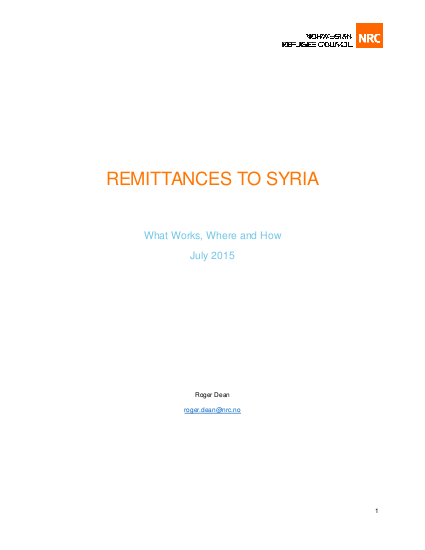What Works, Where and How

This study sought to understand remittance flows into Syria, and established that various Informal Value Transfer Systems (IVTS) are used, to the exclusion of the formal banking sector. Registered and unregistered hawala, courier services and family connections are used. Remittances have played an increasingly important role in Syrians’ household income in the last ten years, although the data available is likely significantly to under-estimate the real volume.
The complexity of, and therefore the full range of risks and opportunities associated with, the hawala system remains only partly understood by many INGOs at an organisational level, although considerable familiarity may exist among key members of national staff and local partner NGOs.
Agencies exploring options for cash-based programming in areas outside government control need to develop extended agent assessment, due diligence and monitoring routines to mitigate against the considerable risks of using an unregulated financial service in a conflict environment.
The required guidance and systems can be created more quickly and effectively if there is the will to collaborate between agencies, and donors will need to play a key guiding role in this process.